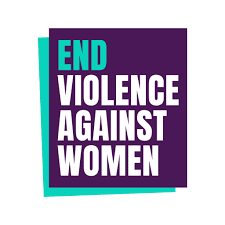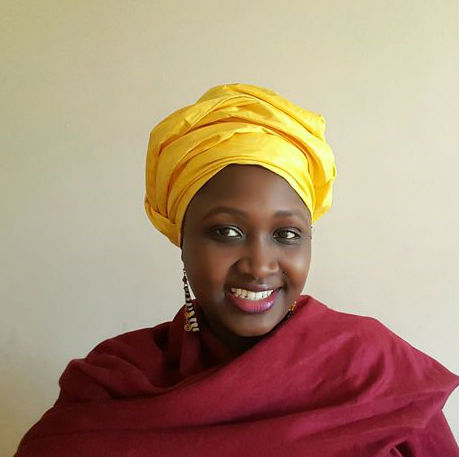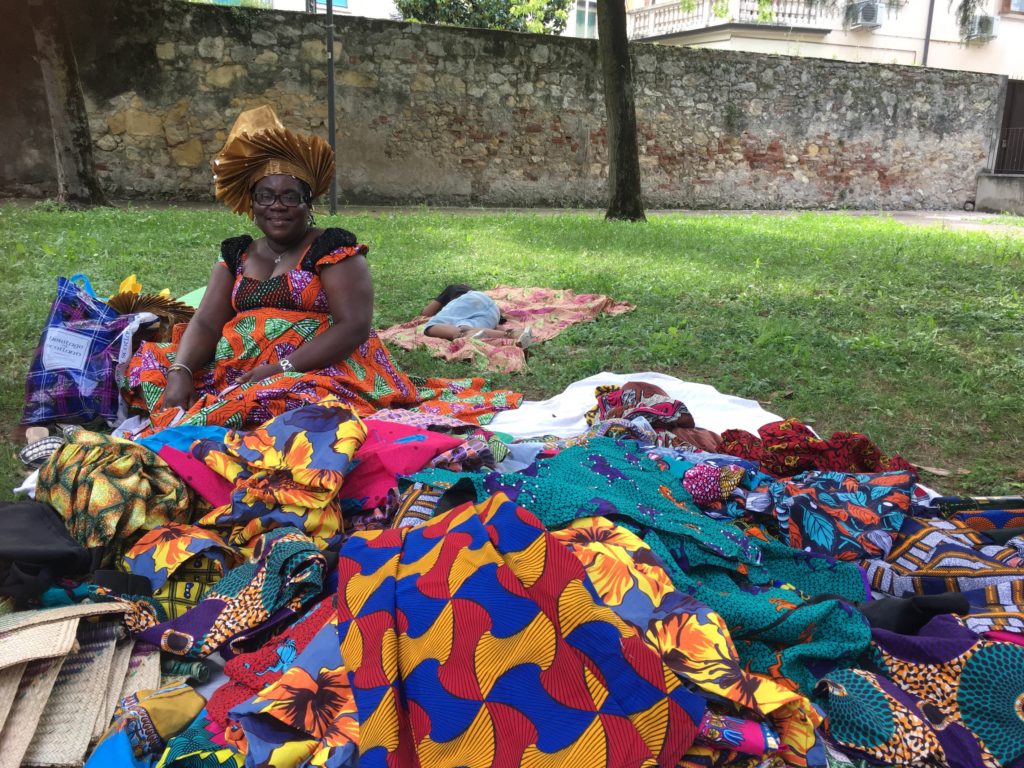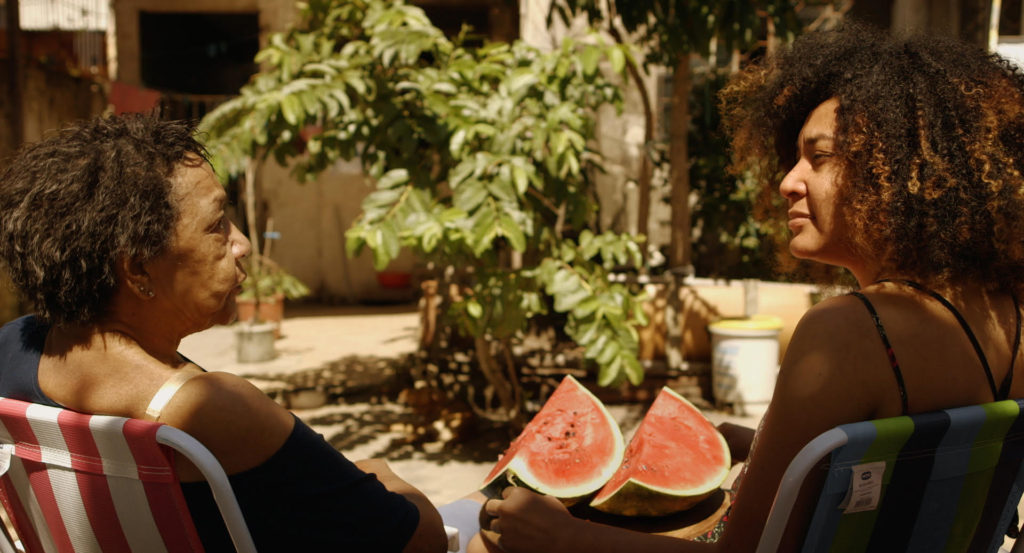As part of the “16 Days of Activism Against Gender-Based Violence” campaign, Migrant Women Press has partnered with key organisations, including End Violence Against Women Coalition, to spotlight the experiences of migrant and ethnically diverse women victims/survivors.
Written by Laura Rodríguez-Davis
A collective of feminist organisations and experts based in London, the End, Violence Against Women Coalition (EVAW) aims to upset systems of oppression that foster violence against women and girls (VAWG). Since 2005, EVAW has focused on transforming social and political institutions through campaigns, influencing policy decisions, and challenging harmful attitudes that contribute to gender-based violence (GBV).
‘Our approach looks beyond the criminal justice system alone, while acknowledging that survivors who want to pursue criminal justice should have access to justice and be treated fairly and with dignity in the process,’ Executive Director Andrea Simon explains. ‘But we are clear that ending violence against women and girls means preventing this abuse in the first place, and this can only happen through coordinated action across the whole of society – from health to education and housing.’
Understanding that diverse women have different experiences, EVAW practises intersectionality and anti-racism in their work to promote inclusivity. ‘We take an intersectional, anti-racist approach to ending violence against women and girls because women’s experiences are shaped by other inequalities they face, including racism, homophobia and ableism,’ Simon informs.
She is also mindful of the unique challenges migrant women face when it comes to GBV. ‘We know that having insecure immigration status can both put women at risk of abuse and stop them from accessing protection and support if they are abused, with perpetrators weaponising fears of immigration enforcement to coerce, control and trap victims in abuse,’ Simon illuminates. Fear of being treated as an immigration offender by law enforcement or potentially placed in a detention centre can force migrant women into silence and resignation to an abusive situation.

Simon does not shy away from speaking up about the UK government’s failures in fully protecting migrant women vulnerable to VAWG. ‘After many years of campaigning by women’s organisations, including the End Violence Against Women Coalition, the government finally made [the Istanbul Convention] legally binding but with reservations on Article 59, which requires member states to grant residence to victims whose immigration status depends on an abusive partner,’ the EVAW executive states. ‘This reservation is in direct opposition to the spirit of the Convention…as it denies migrant women survivors life-saving support.’
Furthermore, structural barriers, such as lack of funding, hinder specialised services for migrant women victims and survivors of GBV. ‘These specialist services led by and for migrant and minoritised women are best placed to provide essential advocacy and holistic support to migrant women; however, they are among those facing the greatest financial challenges after over a decade of austerity,’ Simon notes. EVAW has called on the UK government to address these barriers and failures.
EVAW believes that VAWG is not an inevitability of life. Part of EVAW’s strategy is the prevention of abuse through addressing socio-economic conditions for women as a means of promoting gender equality. According to Simon, ‘preventing gender-based violence means looking at inequalities across society and how they interact with and underpin this abuse. The response to violence against women and girls requires cross-governmental action from housing to health and social care, education, the criminal justice system and beyond.’ Providing survivors pathways for recovery and healing after GBV is also key.

Despite the widespread prevalence of GBV, there are actionable measures that can help prevent VAWG. This includes tackling gender inequality in all its forms, promoting education, working with perpetrators of GBV, better gender representation in media, and supporting survivors of abuse. EVAW have launched numerous campaigns aimed at ending VAWG and other relevant issues, such as addressing GBV in football culture and online abuse, as part of their ‘whole-society approach.’
Additionally, EVAW has acknowledged the racial inequalities within the VAWG sector that further marginalise women of colour. As Simon puts it, ‘Human rights and equalities organisations have a particular duty to ensure we practise the values we advocate for and for too long, the violence against women sector has failed to confront its own racism.’
Andrea Simon was one of a group of women from across the sector who formed an Anti-Racism Working Group, which produced a charter for organisations to follow as a commitment to practising anti-racism. EVAW signed up to the charter and worked to implement its principles in all of its work. ‘We also need to address how structurally white-led organisations work with smaller, specialist organisations led by and for Black and minoritised women,’ the EVAW Executive Director asserts. ‘This includes the structural transformation of a funding landscape,’ which, as Simon explains, forces minoritised organisations to conform to the standards and practises of ‘large, well-funded, white-led organisations, while facing chronic underfunding.’
Drawing from their experienced knowledge, EVAW campaigns for better responses to, and prevention of, gender-based violence in institutions and systems ranging from the police, prosecutors and courts to education in schools. They’ve even provided a framework for the government for service delivery and accountability. As a coalition, EVAW has numerous partnerships with their member organisations, such as Southall Black Sisters, KIRAN, Latin American Women’s Aid, and Kurdish and Middle Eastern Women’s Organisation, that have joined their commitment to ending GBV.
For migrant women in need of support dealing with GBV and VAWG, Simon recommends using Imkaan to get connected to specialised services. Most importantly, she shares this message to migrant women: ‘You have the right to be heard, protected and supported.’
If you or someone you love is affected by VAWG and needs help, you can find lots of resources here, on EVAW’s website. ected to specialised services. Most importantly, she shares this message to migrant women: ‘You have the right to be heard, protected and supported.’
Learn more about the work of EVAW here.
If you or someone you love is affected by VAWG and needs help, you can find lots of resources here, on EVAW’s website.



